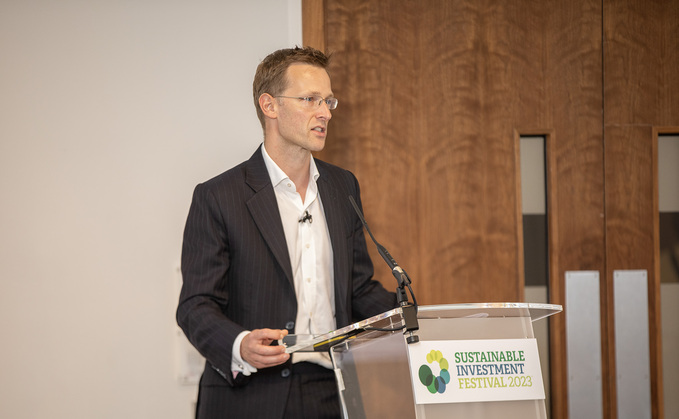
Sackers partner Stuart O’Brien (pictured), speaks at the Sustainable Investment Festival
There is “tension” between the Taskforce on Climate-related Financial Disclosure (TCFD) regulatory requirements and the statutory guidance, Sackers partner Stuart O’Brien says.
Speaking today (14 June) at the Sustainable Investment Festival 2023, O'Brien noted when in the TCFD reporting period, actions need to be taken within the "relevant scheme year", which can leave trustees "in difficulty when waiting for the year-end".
He questioned the policy intent here, and whether regulations could have "been more flexible".
More rigorous approach will boost engagement effectiveness
O'Brien also noted common issues schemes are facing with TCFD reporting included data availability. He said this is "the biggest challenge trustees have faced in reporting".
However, he said while there have been some "big data gaps", if trustees show how they will rectify these in the second year of reporting, it will not be a crucial issue.
O'Brien also noted trustees "need to think how to present data in meaningful ways for members, and tailor it for different cohorts".
"There may be more sophisticated ways of presenting data in ways that resonate more with members."
O'Brien also noted the new requirement this year to report on a fourth metric, portfolio alignment, "is not prescriptive" and there are several ways to report on it, alongside the other metrics and targets already required to report on.
ShareAction's Catherine Howarth on challenging asset managers
He added some schemes are "more sophisticated" in their target setting, but noted this will "evolve over time".
He said: "Do not just report on your targets but revisit targets."
O'Brien added while TCFD reporting requires "lots of time and resources", the process has "got trustees talking about climate-related risks which has got to be a positive".
This article was originally featured on Investment Week's sister title Professional Pensions
















